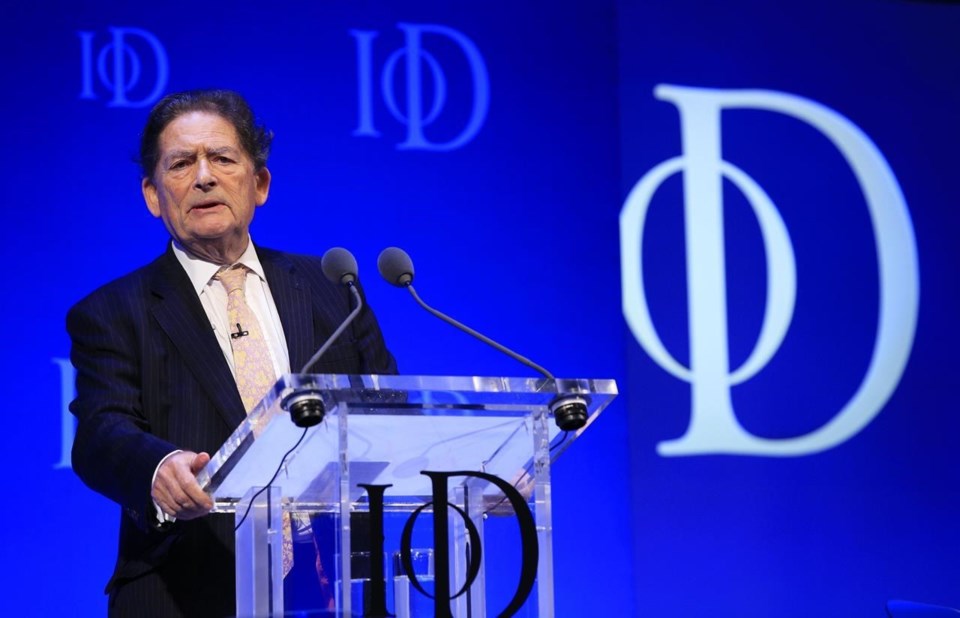LONDON (AP) — Nigel Lawson, the tax-cutting U.K. Treasury chief under the late Margaret Thatcher and a lion of Conservative politics in the late 20th century has died. He was 91.
Lawson, who led the Treasury from 1983 to 1989, spearheaded the drive to place key public sector companies into private control. He also modernized financial markets in what became known as the Big Bang of deregulation, which strengthened London's position as a global financial hub.
He became controversial to some in the last years of his life, advocating for Britain's departure from the European Union — at times from his home in France. His embrace of Brexit further endeared him to the right wing of the Conservative Party.
He also faced criticism for being skeptical of climate change. He opposed international agreements such as the Kyoto Protocol and founded a group that lobbied against climate change policies such as focusing on net zero.
Conservative Party politicians rushed to offer tributes, a reflection of the fact that his policies remain revered. Former Prime Minister Boris Johnson described him as a “fearless and original flame of free-market Conservatism.''
“He was a tax-cutter and simplifier who helped transform the economic landscape and helped millions of British people achieve their dreams,'' Johnson said. “He was a prophet of Brexit and a lover of continental Europe. He was a giant.''
Born on March 11, 1932, Lawson attended seven primary schools during the war after being shunted around the country, He studied at Christ Church, Oxford, and later served in the Royal Navy where he was given charge of a motor torpedo boat, the Gay Charger.
He married his first wife, Vanessa Salmon, in 1955, and moved into journalism where he worked on the Financial Times, the Sunday Telegraph and the BBC. But politics beckoned and in the early 1960s he became a speech writer for then prime minister Alec Douglas-Home.
In 1966, he became editor of the influential magazine The Spectator, but was fired in 1970. In the same year, he lost an election to enter the House of Commons but succeeded four years later when he won the contest to represent the central English seat of Blaby — a post he held until he retired from the Commons in 1992.
His marriage crumbled and it was dissolved in 1980. He later married Therese Maclear, a former Commons library researcher. His two marriages produced six children, including celebrity food writer Nigella Lawson.
When Thatcher won the 1979 election, Lawson was appointed financial secretary to the Treasury and joined the Cabinet two years later as energy secretary. He shepherded the Oil and Gas (Enterprise) Bill, seen as one of the country's most significant privatization measures.
He became Treasury chief in 1983, and presided over a turnaround in the economy. He slashed the basic rate of tax. Thatcher proclaimed him "brilliant.''
He later fell out with Thatcher amid a bitter policy dispute over her reliance on Alan Walters, who served as her economic adviser.
The Telegraph newspaper first reported Lawson's death. His family did not immediately comment.
Danica Kirka, The Associated Press



